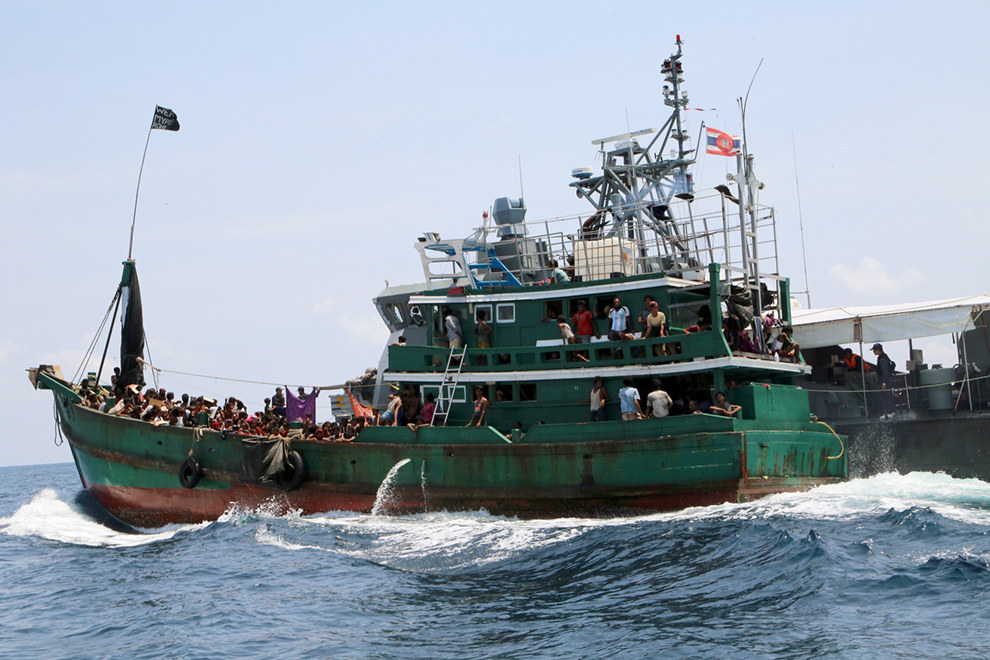Thousands of migrants are stranded at sea on rickety boats, severely malnourished and fighting over what remains of their food and water. Southeast Asian countries are in a stand-off, refusing to rescue the desperate people adrift off their coasts.

“One family was beaten to death with wooden planks from the boat, a father, a mother and their son. And then they threw the bodies into the ocean”, one survivor told The Guardian.
"We didn't have food for two weeks. We were starving. I saw small, innocent children slaughtered at sea." http://t.co/fZNPuP6WPS
ข่าว 3 มิติ คืนนี้ พบเรือชาวโรฮิงญา ต้องช่วยเหลือด่วน มีเด็กเล็ก ผู้หญิง ผู้ชาย 450 คน มีคนป่วย
This report from Thailand’s Channel 3 shows one of the boats with hundreds of people crammed aboard. Every government in the region refused to come to their rescue.
Indonesian authorities have told fishermen not to help the migrants, "even if they were drowning". Despite this, the UNHCR says 1,300 people have been rescued by Indonesian fishermen after they drifted or swam to shore.
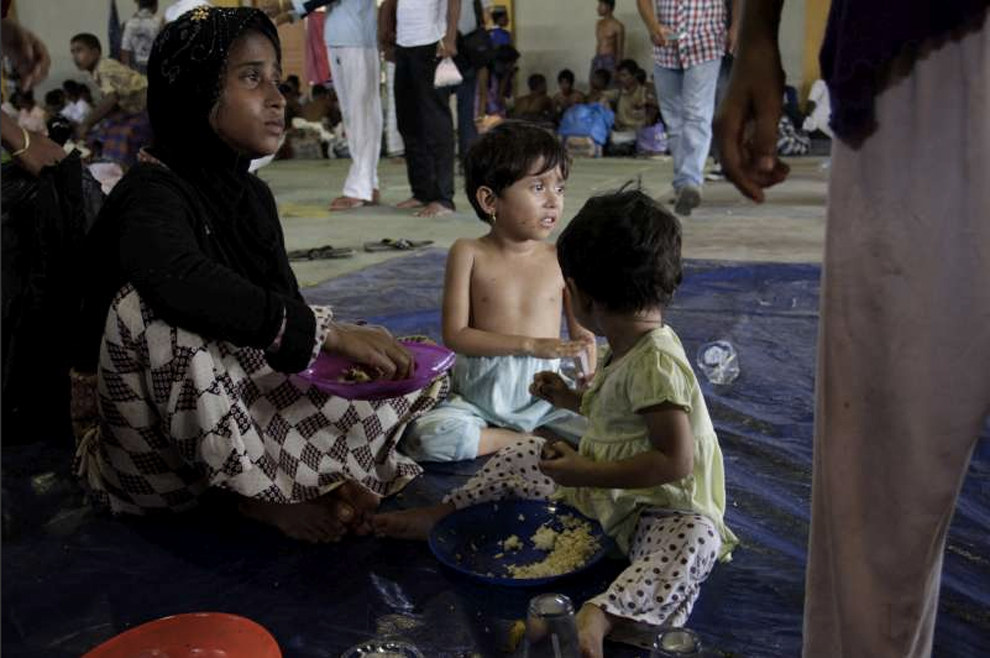
Here are the faces of some of the Rohingya migrants as they pose for identification at a temporary shelter in Indonesia.
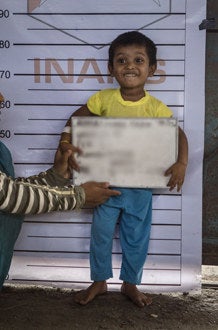


Indonesia, Malaysia and Thailand have been towing the stricken asylum boats out of their own territorial waters, a method which has been used extensively by Australia as part of its government's hard-line immigration policy.
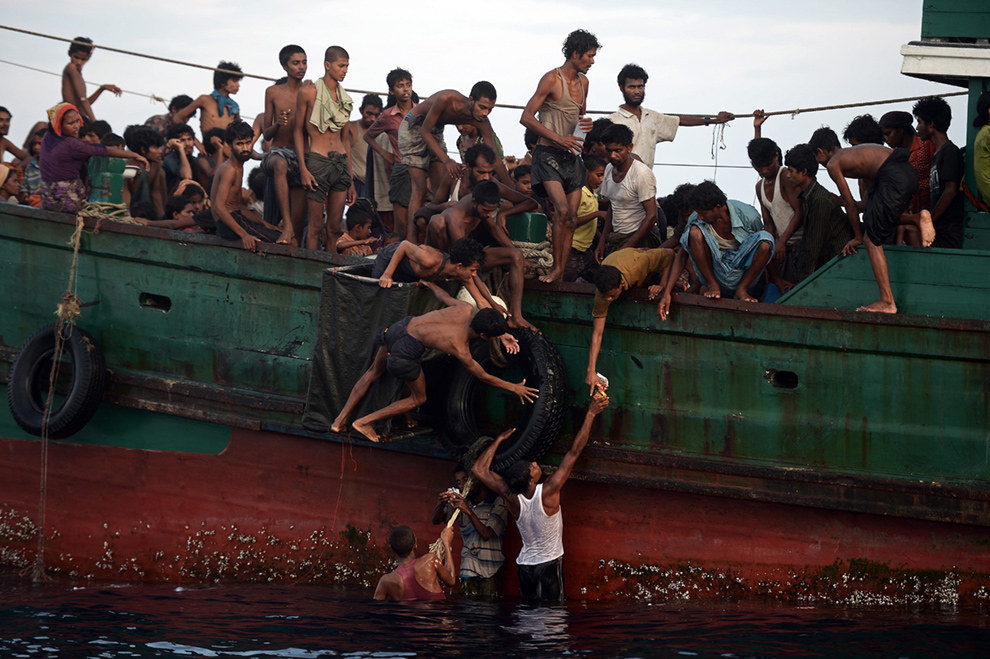
What is the Australian "turn back the boats" policy?
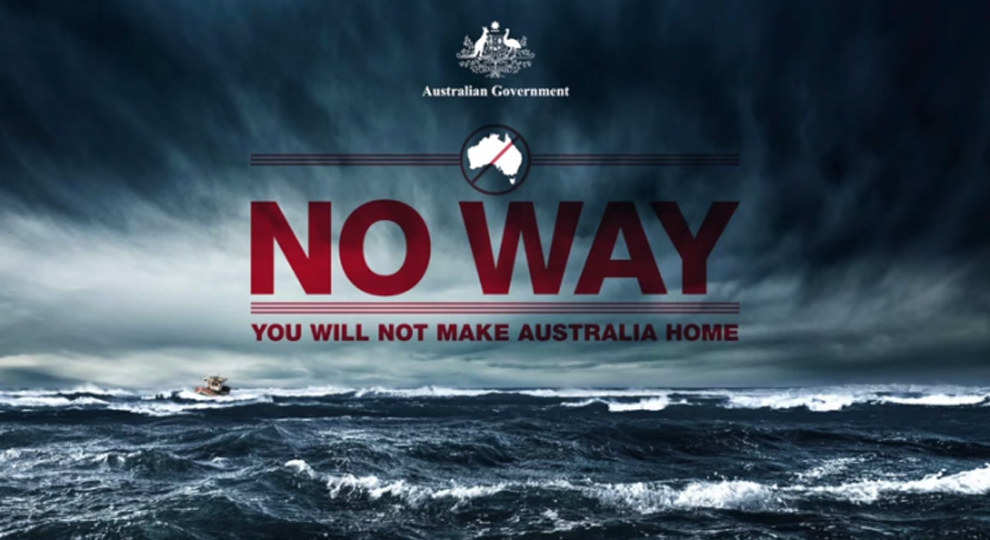
The boat turnbacks policy is highly controversial.
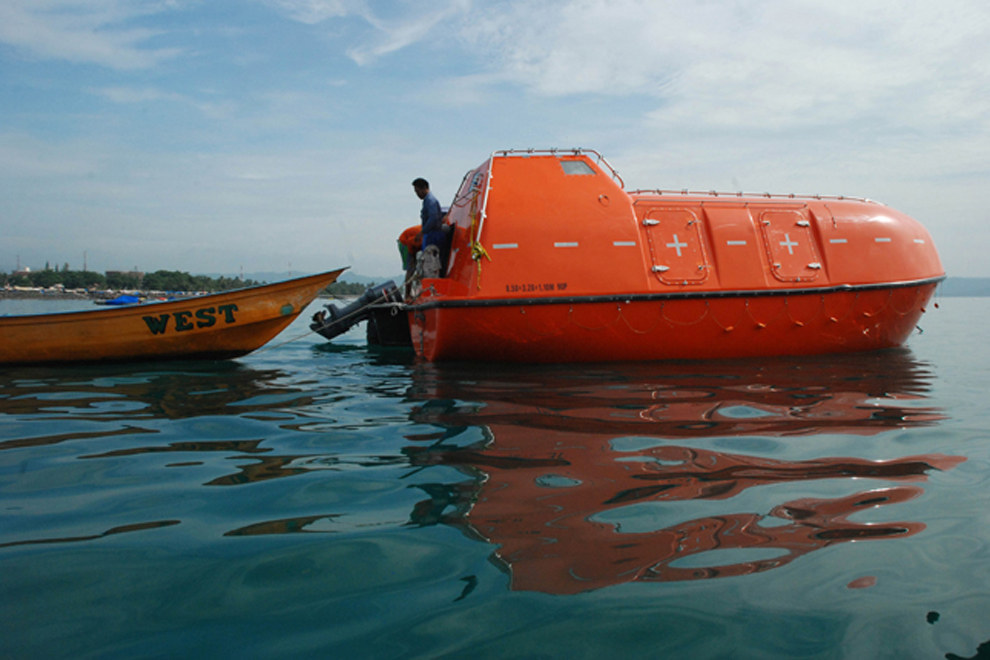
An academic study released in March found there was no conclusive evidence that Australia's towback policy saved lives. In fact, the policy had directly contributed to the deaths of at least eight people.
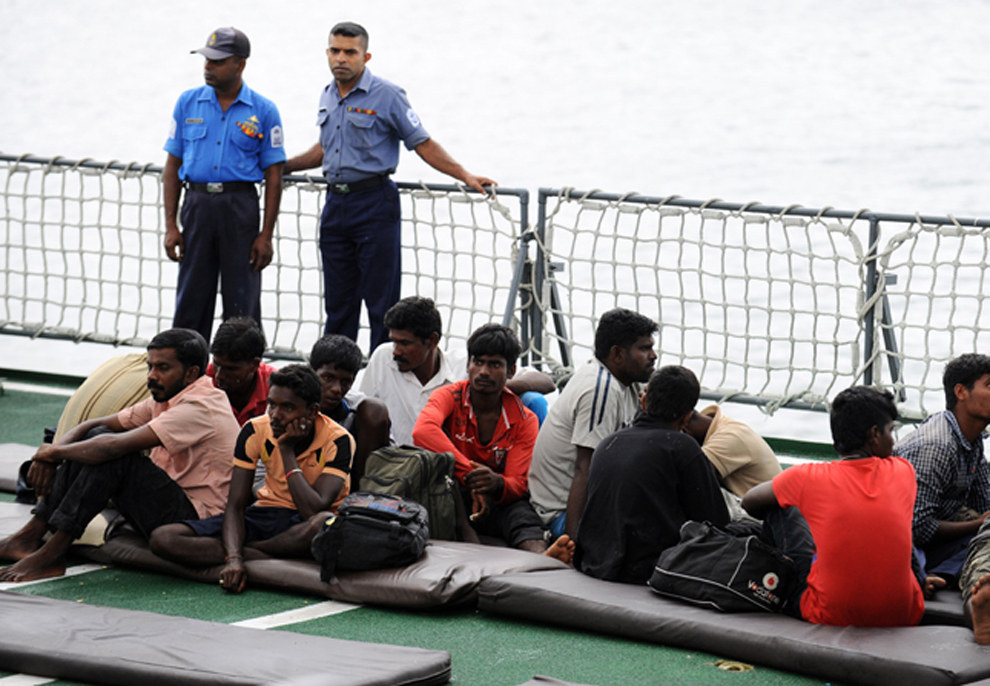
Despite describing Australia's boat turn-back policy as "unacceptable" in the past, Indonesia has admitted to turning back one of the boats carrying 400 people towards Malaysia.
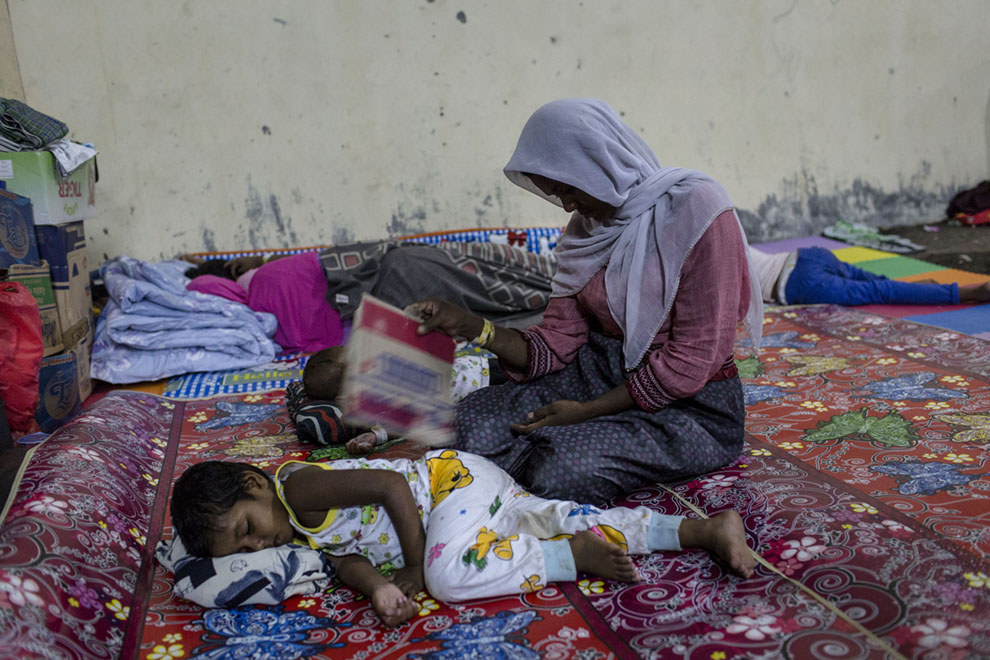
Australia's prime minister Tony Abbott defended the actions of his regional neighbours, and says he makes no apologies for the Australian methods.
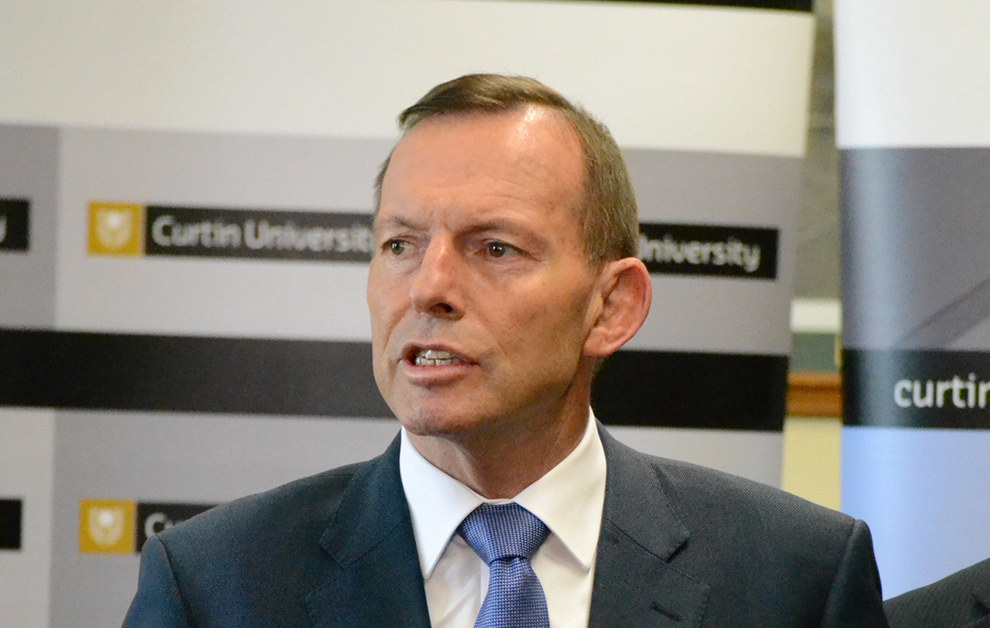
Now, I'm in no way critical of regional countries for the efforts that they make to stop the boats. Yes, we've always got to be humane and we've always got to be decent, but in the end we have to stop the boats. And if that means taking more vigorous action on the high seas, if that means taking more vigorous action to uphold safety at sea closer to Burma and other countries which appear to be the source of this latest surge of boat people, well so be it. But I don't apologise in any way for the action that Australia has taken to preserve safety at sea by turning boats around where necessary and if other countries choose to do that, frankly, that is almost certainly absolutely necessary if the scourge of people smuggling is to be beaten.
Europe is facing its own humanitarian crisis, with the UN estimating that 60,000 migrants have tried to cross the Mediterranean in this year alone. More than 1,800 have died at sea trying to get to Europe this year.
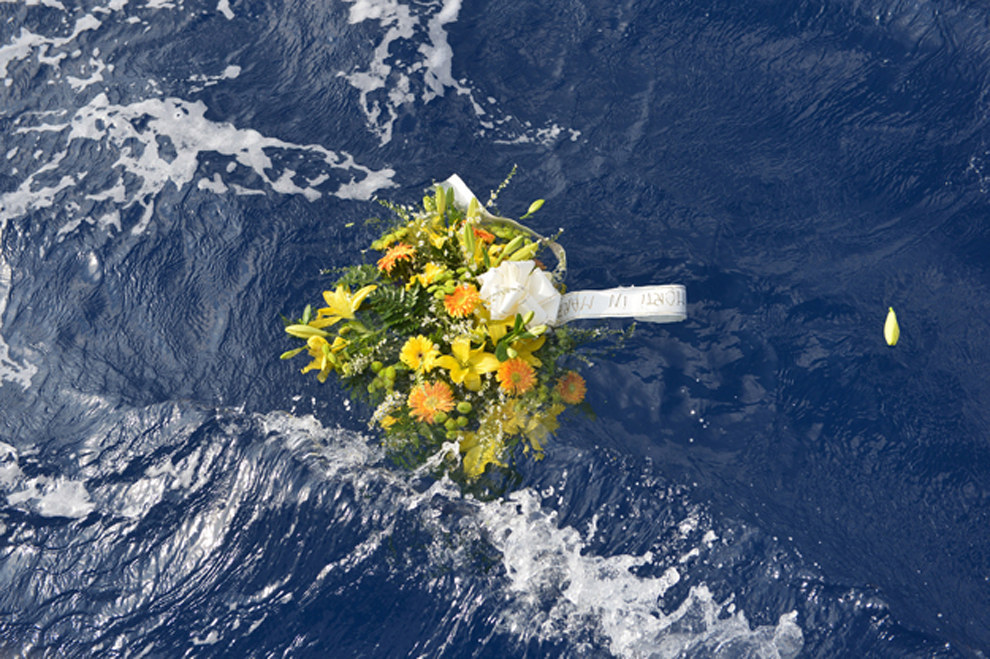
The European Commission will meet in June to discuss a migration policy.
The group of countries will launch an EU naval mission to crack down on people smugglers operating out of Libya. They have ruled out the Australian model of offshore processing. One of the most controversial proposals is to force EU member states to accept a quota of asylum seekers.
This statement from the Commission's High Representative and Vice President Federica Mogherini shows Europe has a completely different attitude to Australia.
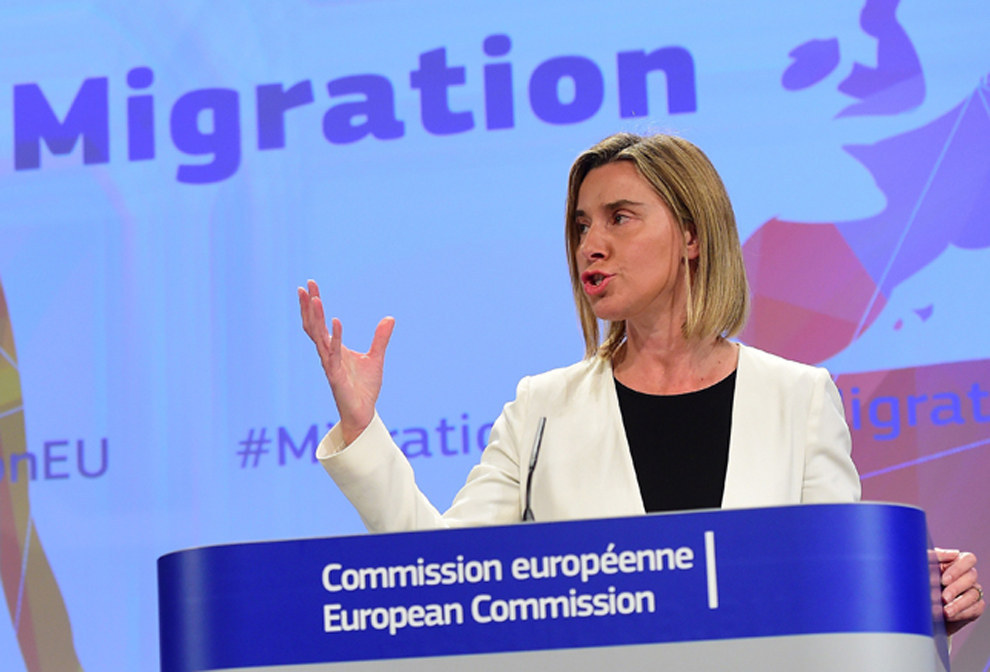
With this bold agenda, the European Union has proven itself ready to address the plight of those escaping from wars, persecution and poverty. Migration is a shared responsibility of all Member States and all member States are called now to contribute to tackling this historical challenge. And this is not only a European but a global challenge: with this agenda we confirm and broaden our cooperation with the countries of origin and transit in order to save lives, clamp down on smuggling networks and protect those in need.
But Britain is pushing back against the EU proposals, instead suggesting that some asylum seekers should be forcibly returned.
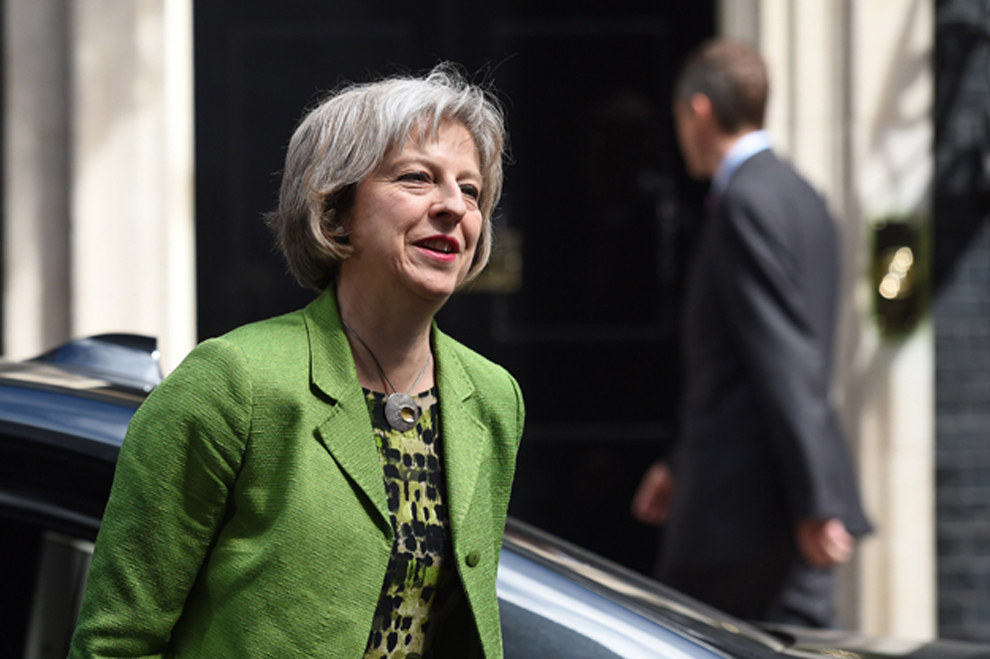
Australia's immigration policy has been lauded as a success, with only one boat arrival in 18 months.
